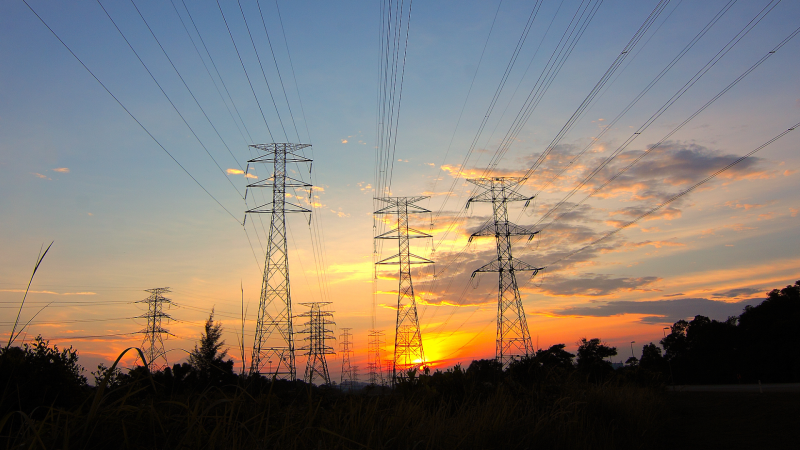Assembly Republicans have unveiled a new version of a heavily lobbied transmission bill opposed by some conservatives, adding provisions addressing farmland preservation and touting nuclear energy to win over previous GOP holdouts.
Lawmakers on Tuesday dubbed the new bill the “Wisconsin Energy Reform Act” and said the previous legislation — known as right of first refusal, or ROFR — wouldn’t be brought to the Assembly floor.
>> WisPolitics is now on the State Affairs network. Get custom keyword notifications, bill tracking and all WisPolitics content. Get the app or access via desktop.
Still, the new version would maintain provisions that would give existing utilities that own transmission infrastructure a leg up in building new lines expected in the state.
The original ROFR has been opposed by some conservative groups and talk radio, who knocked it as anti-competitive.
The revisions have won over some Assembly Republicans, including Rep. Travis Tranel. The Cuba City Republican was sharply critical of the bill during a joint legislative hearing last month. But he praised the farmland preservation provisions included in the new bill, and Assembly Republicans said he “spearheaded” the effort to include them.
Those provisions include a requirement that owners of large wind or solar projects along with battery storage systems purchase conservation easements if they use “prime farmland” for the renewable projects.
Those easements prohibit the land from being developed in any way that would make it unsuitable for agricultural use. For every acre of prime farmlands used for one of those renewable projects, the owner would have to purchase an easement on four acres of prime farmland.
“I worked hard to strike the right balance to protect prime farmland for generations of farmers to come, while still recognizing the need to protect private property owners and the reality that energy generation in Wisconsin will likely always include renewable sources,” Tranel said.
This afternoon’s release quoted four Assembly Republicans, along with Speaker Robin Vos, R-Rochester, saying he hoped to have the new bill on the floor yet this month.
While opponents have argued the ROFR provisions would drive up construction costs, backers have argued it would allow the operational expenses of coming projects to be spread over a larger area rather than being borne just by Wisconsin customers.
The new draft includes provisions in the original ROFR legislation introduced this session. Proponents, including Senate Majority Leader Devin LeMahieu, R-Oostburg, have pushed the bill as the Midcontinent Independent System Operator, a regional authority, has moved forward with new transmission line projects in Wisconsin and other member states.
That includes an amendment that LeMahieu introduced along with five Assembly Republicans that would declare void the rights granted to incumbent transmission facilities if the federal government repeals a provision that allows the owners of transmission facilities to spread costs over the region.
The new bill draft also calls for:
- Expanding a competitive bidding requirement for some pieces of projects to require owners of proposed transmission facilities to go through the competitive bidding process for contracts to design, construct or furnish materials for the project.
- Requiring the Legislative Audit Bureau to review 15% of transmission facility construction contracts subject to the competitive building requirements.
- Requiring those seeking to construct energy battery storage systems to get a certificate of public convenience and necessity from the PSC. The requirement would apply to those systems that are one acre or more and store energy. Under current law, those seeking to build generation facilities of at least 100 megawatts must obtain such a certificate.
- Establishing a state policy that nuclear energy is a high-priority option, second only to efficiency and conservation, to be considered in meeting the state’s power demands. Current law states all new electric generation should be based on renewable sources to the extent that it’s cost-effective and technically feasible. The provision would add nuclear energy to that focus.
- Requiring new lighting requirements for wind systems and high-voltage transmission lines. Rather than constantly flashing lights that serve as a warning to aircraft, the system would only turn on after detecting an aircraft in the area.
Rep. David Steffen, chair of the Energy and Utilities Committee and a proponent of nuclear energy, praised that provision. Assembly Republicans said the Howard Republican’s committee will hear the bill in the coming days.
“By prioritizing low-carbon-emitting nuclear energy as a strategy in energy generation, we will help position Wisconsin to meet the increased electricity demands of today and lay the groundwork Wisconsin needs to be able to attract large electricity technology companies looking to locate their operations in Wisconsin,” Steffen said.
Tuesday’s version is the latest incarnation of the bill circulated in the Capitol in recent days. GOP state Sen. Steve Nass, R-Whitewater, on Friday emailed his legislative colleagues with a different version the lawmaker said he received from a lobbyist.
Nass, an opponent of the legislation, wrote in the email he was sharing the draft in the interest of transparency since most legislators hadn’t been given the opportunity to view it personally. He added there were already rumors of a different version than the one he had, “but we will all have to wait until the lobbying corp gets their copies first.”



